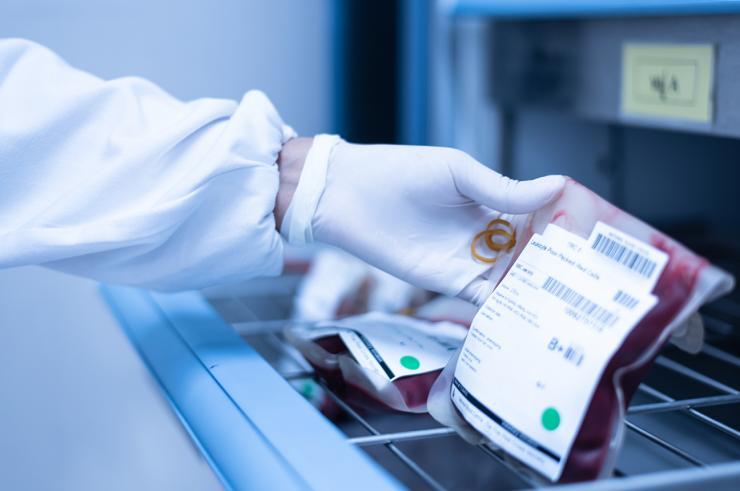Outstanding Innovation in Service Systems Engineering Award : Improving Blood Collection
Aug 01, 2022 — Atlanta, GA

Blood Donation
Professors Turgay Ayer and Chelsea White, both in the Georgia Tech H. Milton Stewart School of Industrial and Systems Engineering, were part of a six-member team that won second place in the Outstanding Innovation in Service Systems Engineering Award competition during the annual Institute of Industrial and Systems Engineering (IISE) Conference and Expo held May 21-24 in Seattle. The annual award is co-sponsored by IISE and Penn State’s Harold and Inge Marcus Department of Industrial and Manufacturing Engineering.
The team of researchers from the American Red Cross, Georgia Tech and Duke University developed analytics-based methods to improve blood-collection operations.
The researchers focused on the system of regional-level blood collection for cryoprecipitate, a frozen blood product that can be used to help people who cannot clot. The product must be processed from whole blood — which includes blood cells, plasma and various proteins and other factors — within eight hours of collection. By implementing a decision support analytics tool to guide how and when whole blood is collected from various sites in its southern regions, the American Red Cross produced 20% more cryoprecipitate (about 1,000 units) per month at a 40% lower cost per unit. Based on this outcome, the American Red Cross plans to implement the approach in other regions.
Team members included Turgay Ayer, professor, Georgia Tech; Can Zhang, assistant professor, Duke University; Chelsea White, professor, Georgia Tech; Zeynep Ozkaynak, director of operations, American Red Cross; Kevin Lee, engineering, American Red Cross; and Mary Deck, chief of manufacturing, American Red Cross.
Ayer is also a member of Georgia Tech Institute of People and Technology, and White is a faculty member of Georgia Tech's Manufacturing Institute.
Service systems engineering is the end-to-end design and management of every component needed to meet a specific need, according to Vittaldas Prabhu, Charles and Enid Schneider Faculty Chair in Service Systems Engineering and director of Penn State’s Service Systems Engineering initiative. He said that each of the winning projects clearly and effectively demonstrated how service systems engineering connects seemingly disparate items to understand an entire system, allowing the researchers to then engineer the system in streamlined fashion to achieve the desired results.
The annual award is co-sponsored by IISE and Penn State’s Harold and Inge Marcus Department of Industrial and Manufacturing Engineering (IME) and recognizes “organizations for the development of innovative techniques to improve the performance of service industries,” according to the IISE website.
“The world — and the systems it comprises — can be made more efficient through service systems engineering,” said Vittaldas Prabhu, Charles and Enid Schneider Faculty Chair in Service Systems Engineering and director of Penn State’s Service Systems Engineering initiative. “This year’s winners represent how streamlining and improving the processes by which industry and service systems operate can produce significant benefits across many different fields.”




